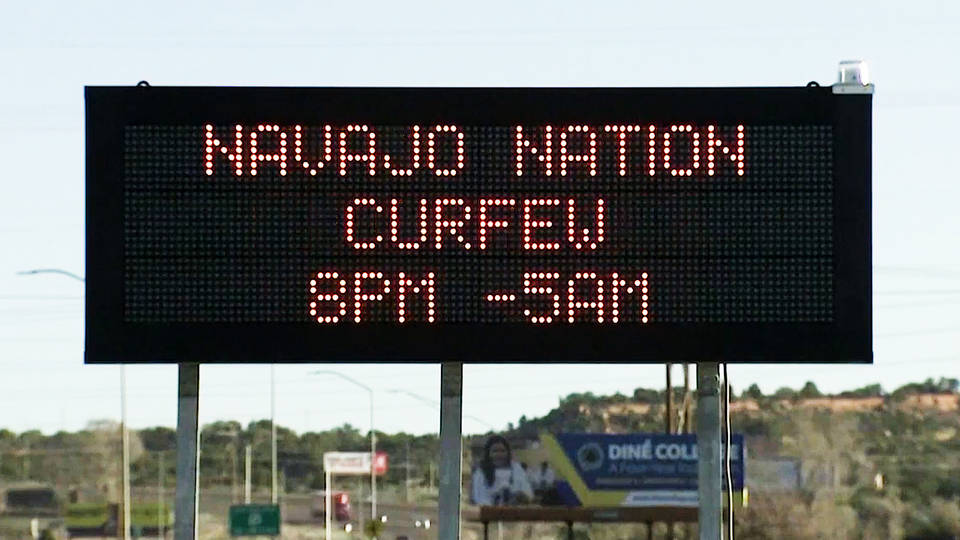The state House’s first floor session since March began — and nearly ended — with fireworks.
By Arren Kimbel-Sannit | Cronkite News
Almost immediately, Democrats on Tuesday moved to notify the Senate that the chamber had completed its labors and was ready to adjourn sine die, a motion that, if passed, would have effectively ended the session.
The motion failed on party lines — if any Republicans have an interest in ending the session, they didn’t show it on the floor. But nonetheless it provided an opportunity for the two parties to stake their positions on the duties of the Legislature in a time of crisis.

Rep. Arlando Teller, D-Chinle, who made the motion to adjourn, cited the plight of his fellow members of the Navajo Nation, which has the highest COVID-19 infection rate of anywhere in the country.
“I believe that as a body that is looking to the best interests of Arizonans…we can successfully, cooperatively end today’s session, and proceed with special sessions that will be specific to the cover pandemic,” Teller said.
That’s one of the Minority’s key arguments: that treating this week as typical distracts from work that needs to be done to help the state survive and recover from COVID-19. Many Democrats want to end the regular session and immediately convene in a special session to that end.
“If we are talking about anything that is not COVID-19 related, we are doing our citizens a disservice,” said Rep. Reginald Bolding, D-Laveen. “I believe we need to sine die today and immediately jump into a special session.”
That would provide an opportunity to pass the worker protections and unemployment insurance reforms that Democrats desire. But Republicans don’t see a reason why the Legislature can’t take on some of those issues right now.
Among that group is Rep. Michelle Udall, R-Mesa, who on Tuesday filed legislation that would appropriate $88 million in federal grants from the CARES Act to support the state’s child care centers as they begin to reopen. It’s one of several pieces of legislation that advocacy groups like the Children’s Action Alliance have requested.
“This bill will appropriate that money and will allow child care centers to receive money so they can reopen…and remain open,” Udall said in a GOP caucus meeting Tuesday morning. “That money will flow to the centers. In order for people to get back to work it’s essential that they have somewhere safe where their children can go.”
If passed, the bill authorizes $85 million in one-time spending to the Department of Economic Security so it can offer forgivable loans to licensed child care facilities and $3 million to the Department of Health Services so it can waive license renewal fees for child care facilities.
Regardless of whether or not the Legislature goes into a special session after it finishes its work this week, Democrats aren’t thrilled about the way GOP leadership is conducting business.
Both the Udall bill and a separate measure to protect businesses and non-profits from legal liability if an employee or patron gets COVID-19 — the primary focus of Republicans this week — were assigned solely to the Rules Committee, rather than the Education or Judiciary committees, where such legislation might normally land.
On one hand, this is more efficient. On the other, there’s generally very little debate or public testimony in the Rules Committee, which has the task of deeming whether a given piece of legislation is constitutional.
“They don’t want to discuss the substantive issues,” said Rep. Diego Rodriguez, D-Phoenix, the ranking Democrat on the House Judiciary Committee
The same complaint can be made for the dozens of Senate bills the House debated today. Many of those carried committee amendments that their sponsors withdrew for the sake of expediency — and to give the Senate as little work as possible should it choose to reconvene and transmit those bills to Gov. Doug Ducey.
To House Minority Leader Charlene Fernandez, this reads as a political ploy.
“Stop trying to lure the Senate back into session with these Trojan Horse bills,” the Yuma Democrat admonished. “We know this is all about the strategy to get the Senate to reverse a 24-6 vote to adjourn.”
After all, unless the Senate decides to reconvene, most of the House’s work this week is for naught. The House needs the Senate to transmit bills that originated in the upper chamber, and it needs the Senate to vote on the Kavanagh and Udall bills, assuming they pass.
That said, Democrats still fell in line on some legislation that isn’t directly COVID related, such as Sen. Sean Bowie’s SB1445, which requires training programs for school counselors to include instruction on suicide prevention. Republicans pointed to this measure, which passed with near unanimity, as an example of legislation that shouldn’t wait until next year, pandemic or no.
The Senate’s role is immaterial, said Rep. Kelly Townsend, R-Mesa.
“I’m proud of those of you who have come in to finish bills that need to be done. It’s important for us to do what we were elected to do,” she said. “This isn’t about what the Senate’s doing.”
If Democrats care about getting in and out of the Capitol as quickly as possible, Townsend encouraged them to resist the urge to comment on each bill and explain each vote — only fuelling claims from the left that Republicans are trying to fast-track remaining legislation with minimal feedback.
“I’d like you guys to prove that you mean it,” Townsend said. “If you really mean it, and you really mean that we need to go home and come back for a special session, then do not press your request to speak. Resist that. Vote and go home.”











